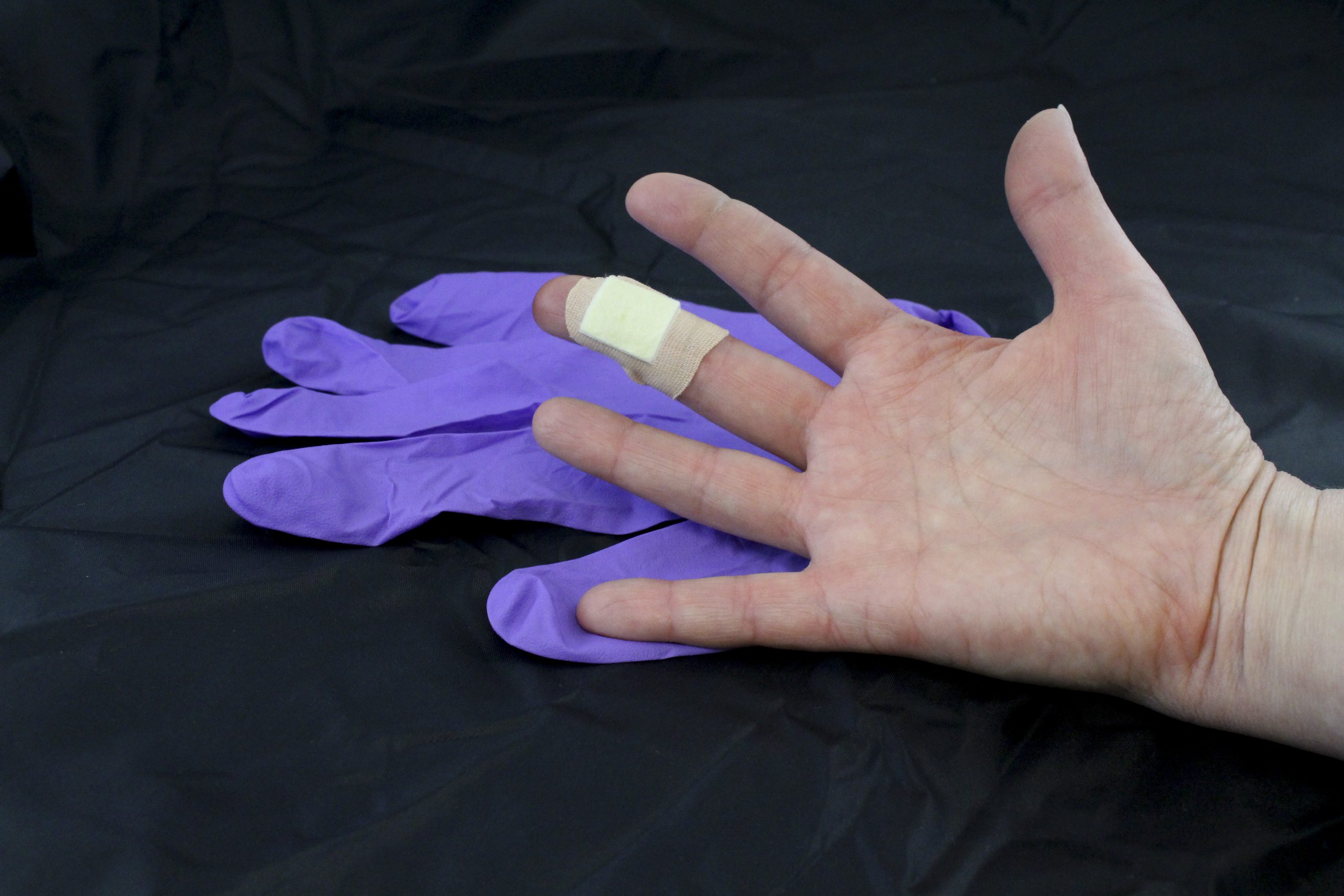CLI by SKC Surface/Dermal Samplers
Human skin is a complex organ, and one of its primary functions is to protect the body from harmful chemicals in workplaces. Depending on the physicochemical properties, these chemicals can either be absorbed by the skin or can remain on the skin surface. In both cases, they can damage the skin’s function and eventually compromise health. Thus, dermal exposure is an important component that needs to be considered when conducting assessments on workplace exposure to chemical hazards.

The determination of dermal exposure is a challenging task due to the small amount of sample material, the impact of skin sampling on the skin (surface) condition, and the technical sophistication that is required for sampling.
Developing miniaturized and inexpensive detectors is, therefore, an important and practical goal for field-deployable monitoring of chemicals on surfaces. The CLI by SKC Surface/Dermal Samplers are developed based on the principle of color chemistry; contaminants react with the chemicals contained in the samplers to produce a color change.
The colorimetric Skin SWYPEs, Surface SWYPEs, and PERMEA-TEC Sensors, manufactured by SKC laboratories, are a semi-quantitative detection method for chemicals on surfaces and the skin. Each
sampler has specific color chemistry for each of these six groups of chemicals: aromatic isocyanates, aliphatic isocyanates, aromatic amines, aliphatic amines, acids/bases, and phenols. The chemical is detected by wiping the skin or surface and using specific solutions to develop the color for the specific compound.
Direct reading indicators such as the CLI by SKC Surface/Dermal Samplers, change color when exposed to specific chemicals (or classes of chemicals). From the perspective of chemical hazards
monitoring, such indicators may be used as a screening tool, when assessing the extent of surface contamination, because they are inexpensive, and the results are almost immediate. If an indicator wipe yields a positive result, a wipe sample can then be sent to a laboratory for confirmation.
Citing an application in the OS+H industry, toxic chemicals such as pesticides, aromatic amines, and isocyanates can permeate gloves and protective clothing. Wide variations in the chemical resistance of gloves and protective clothing compositions make protective equipment selection difficult – especially if using mixtures of chemicals in the workplace. For instance, gloves are flexed, stretched, pressured, and abraded in use which can result in premature chemical breakthrough and alter reliance on ASTM laboratory breakthrough data. PERMEA-TEC pads can hence be used for the initial evaluation of a new glove. They are worn under gloves during actual field use and show the point at which breakthrough occurs. This information enables the safety professional to select a glove that will perform optimally in terms of protection, employee acceptance, and cost-effectiveness.
“Fixing the Problem”: Selecting an effective decontamination product is not straightforward, as the efficacy of these products in removing targeted chemicals is not readily available. Typically, decontamination of a reactive chemical could be achieved via two mechanisms: chemical reaction, and physical process.
A suitable decontamination solution should possess high decontamination efficiency to produce non-toxic reaction products, minimal alteration of the skin barrier, and minimize the risk of
increased penetration from subsequent exposure.
Hence, to help safely remove detected contaminants, the D-TAM (for dermal applications) and DECONtamination Solutions (for large surface applications) are purposefully formulated with an oily/lipophilic content, which possesses high mechanical removal efficiency.
